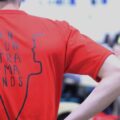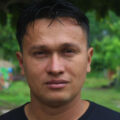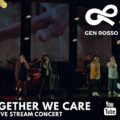
Workshop
Aero Sustentable. “Transforming the world by transforming businesses”
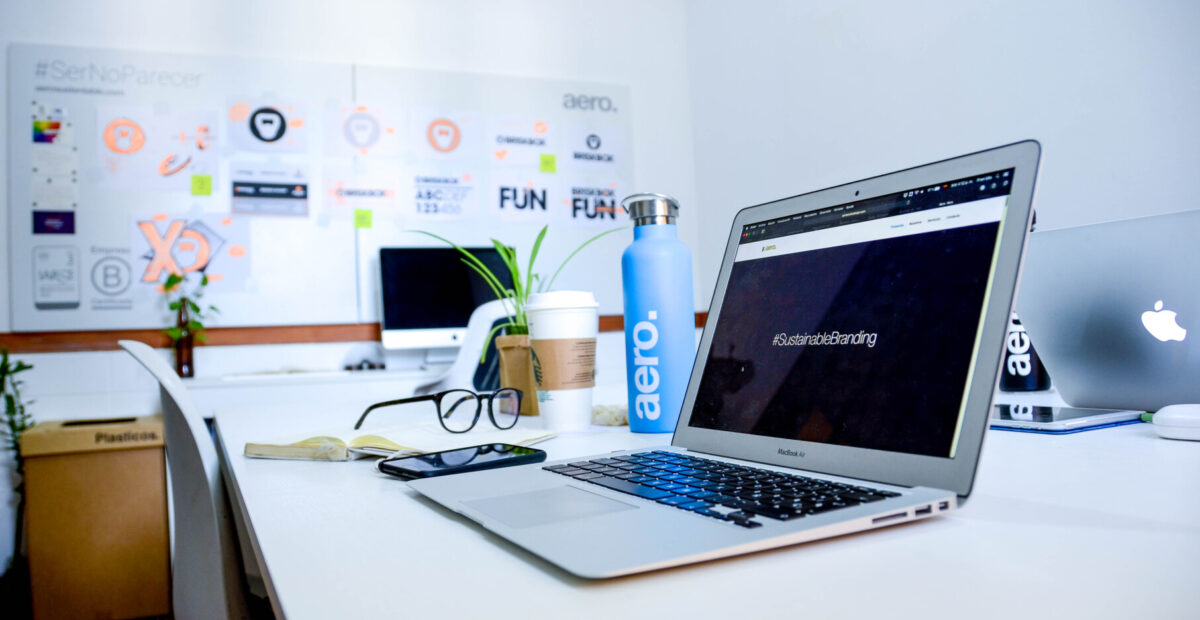
Francisco Ulla, 33 years old, from Argentina, is a designer, specialized in Sustainable Management and graduated in Business Management. He is one of the founders of Aero Sustentable, a creative agency for sustainability that accompanies the development of brands committed to changing the world for the better.
Aero Sustentable started six years ago. It all began when, at university, Francisco met Facundo Revol (35 years old, also a graduate in Business Management and Sustainable Management). After several years of studies and projects, they decided to set up a graphic and industrial design studio focused on sustainability. Today, together with Carolina Ulla, a lawyer specialized in Environmental Law and Francisco’s sister, they make up the team of this creative agency for sustainability that accompanies the development of brands committed to changing the world for the better. Aero uses creativity as a means to empower the message of businesses and organizations to incorporate sustainability into their brand declaration, design and actions, and truly engage in a transformative process for sustainable development. But what does this all mean?
“We want to generate a positive social and environmental impact, we are a certified B Corporation[1] and we are members of the Argentine Institute of Social Responsibility and Sustainability (IARSE)[2]”, Francisco explains. “Today we have more than six years of experience behind us and can count on a multidisciplinary team of experts in brands, business objectives, business process management, communications, circular economy and sustainability”.
“Transforming the world by transforming businesses,” the goal
Let’s start from the beginning: the purpose. “Today, companies – Francisco explains – in addition to answering the question ‘what do we do?’, which is about the product or service they offer the customer, are starting to think about their own business purpose, i.e., why they do what they do”.
The purpose of Aero is to transform the world by transforming businesses: the agency therefore accompanies each company, with tools, techniques and dynamics mainly derived from the world of coaching, in the search for its own purpose, which can then be communicated. Next, companies receive training in circular economy, so they can implement their purpose in practice. Finally, Aero helps develop and implement an effective communication strategy for the purpose, so that the correct image of the company reaches the public.
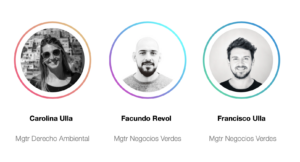
Identity = image
“The idea that Identity = Image makes sense to us. It’s important that your image reflects who you are, what you do, and how you do it in a way that customers understand. It’s a balance: it takes authenticity and consistency to be able to say that what you do corresponds to who you are and that what you show is what you really do. Because if you show yourself to be sustainable without being so, you fall into ‘greenwashing’, the communication that conveys a distorted message of sustainability that does not correspond to the truth, or you fall into the situation in which you put into practice a positive model but fail to communicate it or communicate it in an ineffective way”.
“There’s always another way to doing things”
Aero works with all types of clients: government institutions and large, medium and small businesses. How do you find a sustainable solution for each of them? One example comes from a customer, a company that works with plastics: “For over thirty years they produced single-use plastics, then they realized that today the world is going the other way. So they came up with a new business purpose related to the transformation of the plastics industry. They are trained in circular economy and now offer services in glass rental and recycling of materials. Their method is the reuse of waste, with which they generate new products without additional costs. In this way, the company creates jobs and opportunities, does not need virgin materials for production and gives rise to a more competitive model”.
Another client works in agriculture and now produces recycled bins, others are starting to practice sustainable agriculture and certified farming for better yields. “Among our clients we also have government institutions that want to apply the circular economy to local government. Such as the municipality of Córdoba, with whom we are trying to involve different actors to recover waste and avoid it all ending up in landfills, as it happens now, thus generating savings that can be invested in improving waste management itself”, says Ulla.
Aero’s winning strategy has always been and continues to be creativity: “you can always find a different way of doing things,” says Francisco. With creativity, everything can be transformed, and in this way the value of a brand can emerge. Not just at the communication level – that’s the last stage – but at the level of identity, best practices and message. Branding, purpose, perception.
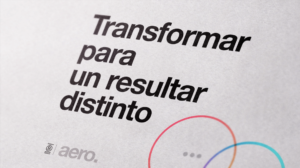
The power of purpose
Purpose doesn’t just serve the company in defining how and why it does something. It’s also key to creating a connection with people: “Today, people consume certain products because of an affinity with the brand’s philosophy. An example is clothes: choosing to dress a certain brand today means, in many cases, showing that you identify with the values and tastes of that brand. The clearer your philosophy is as a brand, the easier it will be for your audience to understand if they identify with your branding and, as a result, the engagement or commitment of your target audience will be higher”.
The “more with less” philosophy
One of the last topics I discuss with Francisco is the idea that you can generate more with fewer resources. “We believe that you have to try to have the most impact with the least amount of resources. And we believe the way forward is to help companies and institutions do that,” Francisco continues.
It is a very concrete philosophy, because it pushes us to rethink the various sectors, to transform them even at the image level. “Some sectors, such as those that follow a linear production system, are seen as criminals of the environment, because they use non-renewable natural resources and turn them into products that are sold and then thrown away, such as the plastics industry. By converting to a ‘more with less’ philosophy, the plastics industry can recover product before it becomes waste and process it, avoiding waste and taking more resources from nature. Today, those who do this take the reins of their industry, become leaders, and others follow”.
Here’s what Aero has taught us, an agency that transforms businesses to transform industrial processes to arrive, step by step, at changing the world.
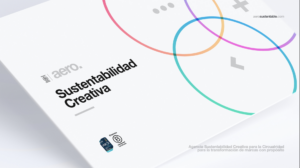
[1] Sistema B is a non-profit organization that believes that governments, civil society organizations, social movements, citizens and corporate social responsibility, as a whole, cannot solve current social and environmental problems. It promotes ‘B Corporation’ and other economic actors in Latin America to build a new economy in which profit and financial gains include economic and social well-being. It is committed to supporting the creation of ecosystems favorable to B Corporations and other economic actors that use market forces to offer solutions to social and environmental problems. https://www.sistemab.org/
[2]IARSE: L’Instituto Argentino de Responsabilidad Social y Sustentabilidad (IARSE) is a national and regional reference point on Social Responsibility and Sustainability of organizations. It aims to sensitize public opinion on the concept and practice of RSS, so that it becomes established as a corporate and institutional management practice capable of contributing to the sustainable development of Argentina and the region. https://www.iarse.org/
